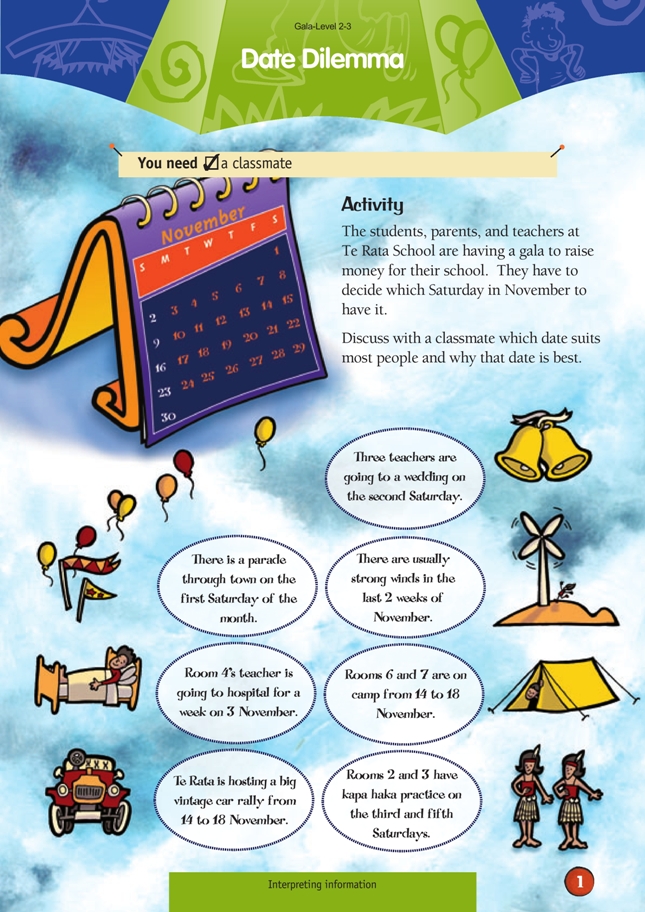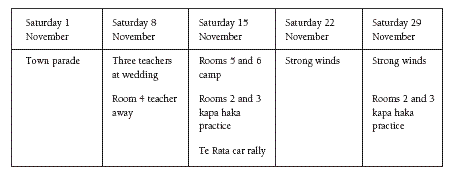This is a level 2 measurement activity from the Figure It Out theme series.
A PDF of the student activity is included.
Click on the image to enlarge it. Click again to close. Download PDF (308 KB)
interpret a calendar
A classmate
This activity encourages students to discuss the problem co-operatively, interpret a calendar, and use sound reasoning. Before beginning the activity, you may need to review the students’ calendar reading skills by asking questions such as:
• How many weeks in this month?
• Which is the third Saturday?
• What is the date of the Saturday between Thursday 6 November and Tuesday 11 November?
Ensure that the students understand that a week is just 7 days, for example, Sunday to Saturday or Friday to Thursday. A common mistake made by students is that a week is from Sunday to Sunday or Friday to Friday, that is, 8 days.
You could introduce the activity by showing the students a large calendar, highlighting the dates of important events at your school, and asking the students to think about the likely reason for those days being chosen.
The students then need to work in pairs to decide which date they would choose and why. Make sure they realise that there is no right answer. This could be followed by a class discussion in which each pair shares their choice of Saturday and their reasoning.
The students may find it easier to compare Saturdays if they organise the data in a systematic way, for example:
Answers to Activity
None of the dates is ideal. Students could argue that 22 November is the best, but there is the risk of high winds. Students could argue that 1 November is the best because a lot of people will be in town for the parade and will also come to the fair if the timing is right.

